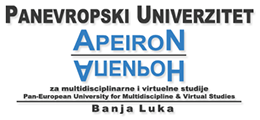 Meat in Human Nutrition
Meat in Human Nutrition
Quality of Life (Banja Luka) 1(1) 16-25
Meat in Human Nutrition
Radoslav Grujić
University of East Sarajevo, Faculty of Technology, Zvornik
This paper analyzes the role of meat in human nutrition. Meat and meat products have been one of the main foodstuffs in human nutrition worldwide for centuries. Type and quantity of consumed meat were influenced by different factors (religion, social status, and offer) in the past. Meat and meat products are the foodstuffs, which are the most important for its composition and nutritive value. People who consume meat are provided with proteins which have balanced ratio of essential amino acids, B complex vitamins, micro elements (iron, zinc, copper) and energy. On the other hand, meat contains significant quantity of fats in which dominate saturated fatty acids and cholesterol. During technological process table salt is added to meat, thereby high concentrations of sodium enter the body. Researches in the last 30 years pay more and more attention to the impact that certain type of meats in human nutrition have on heart diseases and cardiovascular diseases, appearance of high blood pressure, stroke and colon cancer and to possibility if processing procedure would be changed, fats content, cholesterol and sodium would decrease, thus lowering the risk of mentioned diseases. The aim of this paper is to review existing literature for both the risks and benefits of meat consumption, focusing on case-control and prospective studies. Researches in the science of meat and meat technology gave results and meat products are obtained with lower sodium content, lower content of saturated fatty acids and higher content of poly-unsaturated fatty acids. Thus, meat and meat products will stay the most important foodstuffs in future centuries due to its nutritive, culinary and sensory traits.
Key words: Meat, Human nutrition, Nutrition value of meat, Health protection
| Attachment | Size |
|---|---|
| QOL-00-2-Grijic.pdf | 338.72 KB |
